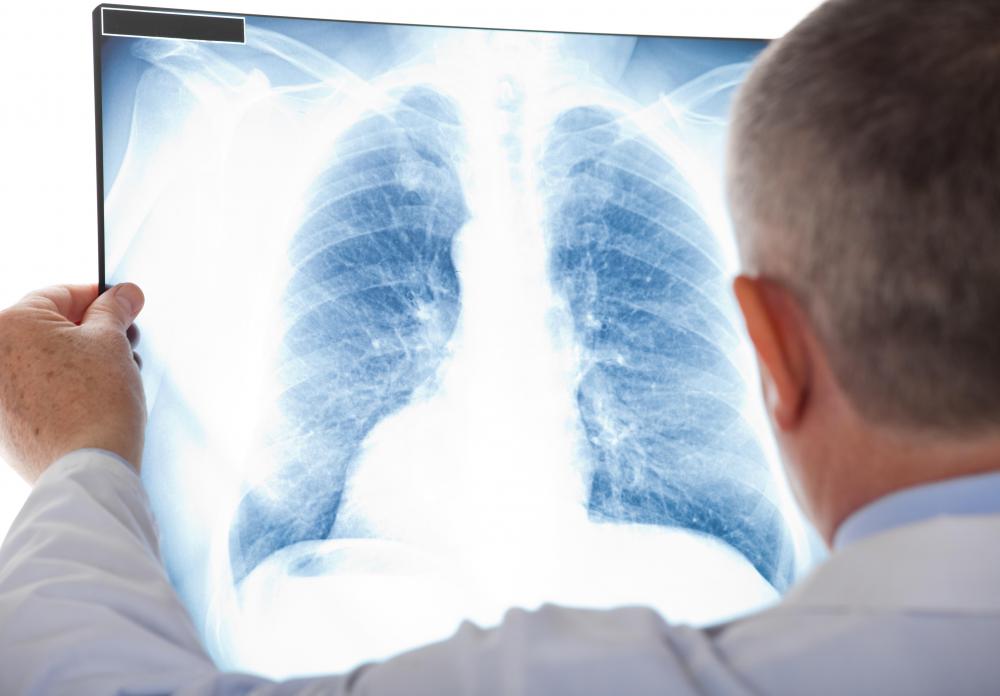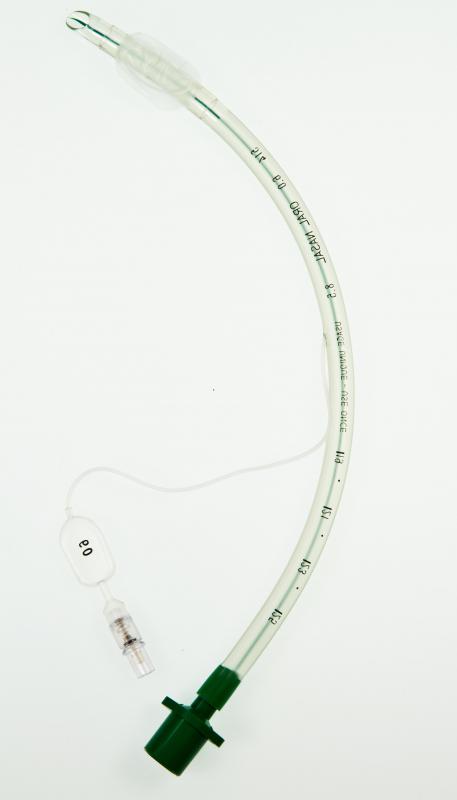At TheHealthBoard, we're committed to delivering accurate, trustworthy information. Our expert-authored content is rigorously fact-checked and sourced from credible authorities. Discover how we uphold the highest standards in providing you with reliable knowledge.
What Are the Potential Complications of Intubation?
A number of different complications of intubation are possible. If patients need urgent assistance in breathing, they are typically intubated by having a breathing tube inserted into the mouth, which is then passed into the trachea; this tube is often referred to as an endotracheal tube. After intubation, a ventilator can pump air into and out of the lungs. Complications of intubation can arise from the insertion process, as the tube could damage either the respiratory or gastrointestinal tracts. Patients who are intubated have an increased risk for infections such as pneumonia and sinusitis, and long-term breathing support with an endotracheal tube can result in damage to the respiratory tract, making future breathing more difficult.
The tube insertion itself can occasionally cause harm to the patient undergoing this procedure. Rarely, the tube can damage the vocal cords, leading to problems with talking after the patient is removed from the ventilator. Other times, the tube could pass into the esophagus instead of into the trachea, leading to tears in the esophagus. This can result in bleeding within the gastrointestinal tract, and could also cause problems with swallowing after the breathing tube is removed.

With time, and with improper care of the intubated patients, an infection of the lung called pneumonia can occur. Often this condition, which is one of the complications of intubation, is referred to as ventilator-associated pneumonia. This type of infection develops because the lungs of intubated patients are less protected as compared to people who are breathing normally because air is pumped directly into the lungs. Many times these infections are difficult to treat because they are caused by resistant bacteria present in the hospital.

Another of the infectious complications of intubation is sinusitis, a condition characterized by inflammation and irritation of the sinuses. This side effect occurs because the drainage of the sinus cavity is often impaired by the presence of the endotracheal tube. Patients may or may not have symptoms of this infection. It is clinically important, though, because infection of the sinus cavities can cause a fever. Imaging studies such as computed tomography (CT) scans are performed to identify sinusitis.

Patients who need to stay on a ventilator for an extended period of time can experience other complications of intubation. The presence of a plastic tube from the mouth to the lungs can damage the cartilage supporting the respiratory tract, decreasing its structural integrity. Different parts of the respiratory tract, including the trachea, can narrow due to the tube's presence. As a result patients could develop wheezing and shortness of breath. For this reason, patients who are expected to need help breathing for over a week are often switched from being intubated through the mouth to being intubated through the trachea.
AS FEATURED ON:
AS FEATURED ON:















Discussion Comments
My dad has had problems eating and swallowing his food after intubation. Also, they found a large skin clot the size of a quarter and a large blood clot the size of a mike and Ike candy stuck in his throat afterward. They would never have found the clot if I hadn't kept telling them something was stuck in my dad's throat.
My dad is in a nursing home now at the age of 64 because of this. He is too weak after being in the hospital for too long and lost 40 pounds and has throat damage after intubation just because he had pneumonia.
He recovered from pneumonia but not from the intubation and starvation and mouth dehydration from the hospital. They still haven't figured out what caused the pneumonia.
I have very little voice control now after being intubated four months ago.
Post your comments